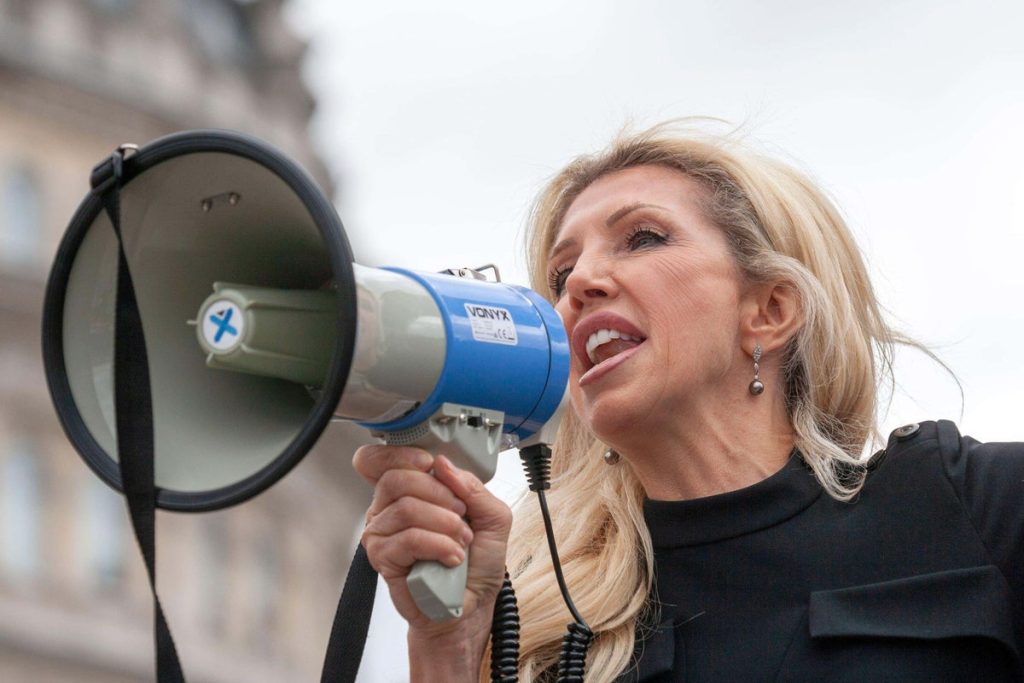Listen to the article
Cancer Patient Dies After Refusing Treatment Under Family’s “Alternative” Therapy Regime
The brother of a Cambridge graduate who died after declining cancer treatment is warning that Britain has entered the “wild west of health misinformation” with “no protections” for vulnerable patients.
Paloma Shemirani, 23, died in July last year after refusing conventional treatment for non-Hodgkin lymphoma. Instead, she followed a controversial alternative therapy program administered by her mother, Kate “Kay” Shemirani, a former nurse and prominent conspiracy theorist.
An inquest earlier this month determined Paloma “could and should” have survived her cancer diagnosis. Medical experts testified she had an 80% chance of recovery had she undergone standard chemotherapy treatment.
“I tried everything. I tried the High Court, I went to a coroner’s inquest, I did the BBC Panorama interview, but nothing actually physically changed,” said Gabriel Shemirani, Paloma’s twin brother, who has been fighting to raise awareness about his sister’s case.
Evidence presented to PA news agency reveals that Ms. Shemirani had been offering similar alternative treatment programs to cancer patients for years before her daughter’s death. Email records from 2017 show multiple prospective “patients” completing consultation forms where they outlined cancer diagnoses and expressed hopes that Ms. Shemirani’s methods would “heal” them.
One consultation form, completed by the daughter of a woman with acute leukemia, explicitly stated: “I expect to be successfully treated/healed from leukemia using the Gerson Therapy.” According to medical information in the email, this woman had less than a year to live without conventional treatment.
The woman with leukemia was reportedly referred to Ms. Shemirani by Patrick Vickers, her ex-partner. The coroner named Vickers as one of the people who had “influenced” Paloma’s decision to refuse medical treatment.
Ms. Shemirani, who was struck off as a nurse in 2021 for spreading “harmful misinformation” about COVID-19, describes herself online as “the natural nurse.” She practices and advocates Gerson therapy, which involves a strict vegetarian diet and daily coffee enemas—the same regimen Paloma followed before her death.
Cancer Research UK has explicitly stated there is no scientific evidence supporting Gerson therapy as an effective cancer treatment. Moreover, the 1939 Cancer Act prohibits any advertisement offering to treat cancer or prescribe remedies for the disease.
Despite these regulations, Gabriel Shemirani argues that the authorities failed to intervene effectively in his sister’s case. He expressed confusion over the coroner’s conclusions, which found that his mother “did not meet” her duty of care to Paloma but stopped short of determining “unlawful killing.”
“The coroner’s ruling was dangerous and will only embolden conspiracy theorists,” Gabriel said. He is now considering a judicial review of the inquest to push for an “unlawful killing” finding or a future civil case.
Paloma’s older brother, Sebastian Shemirani, believes UK authorities aren’t equipped to deal with conspiracy theorists and their impact on vulnerable individuals. “The existing framework that authorities and safeguarding mechanisms have for understanding abuse doesn’t understand how coercion happens in the mind of the victim,” he explained.
“When you’re a victim of abuse, you learn to blame yourself for the abuse you’re suffering. It’s not the case that you wake up one day with free will and then you’re bullied into accepting something that you wouldn’t otherwise do, such as rejecting traditional cancer treatment,” Sebastian added.
Gabriel Shemirani provided the emails documenting his mother’s alternative cancer treatment offerings to the coroner’s inquest, which did not admit them as evidence, and to Sussex Police. He criticized social services for their inaction while his sister was alive and described police as “useless” following her death.
Sussex Police have stated that all information sent to them has been carefully reviewed, though no charges have been filed.
The case highlights growing concerns about medical misinformation and its potentially deadly consequences, especially as social media allows conspiracy theories to spread rapidly. Health authorities continue to warn that delays in seeking proven medical treatments for cancer significantly reduce survival rates.
Fact Checker
Verify the accuracy of this article using The Disinformation Commission analysis and real-time sources.




9 Comments
This is a heartbreaking case. Paloma Shemirani’s death could have been prevented if she had received the proper medical treatment. Her brother is right to raise awareness about the dangers of unchecked health misinformation.
I’m curious to learn more about the specific alternative therapies Paloma’s mother was promoting, and how she was able to continue offering these programs despite the clear medical evidence against them.
Yes, that’s a good point. The article mentions she was a former nurse, so she likely had some degree of medical knowledge that she was misusing to lend credibility to her unproven treatments. Investigating the full scope of her activities is important.
This is a sobering reminder of the real-world, life-and-death consequences of health misinformation. Paloma’s case shows how desperately we need better safeguards to protect vulnerable patients from charlatans and snake oil salesmen.
The statistics are alarming – an 80% chance of recovery with standard chemotherapy, but her mother’s alternative therapy regime tragically led to her death. This highlights the critical need for stronger regulation and protections for vulnerable patients.
Absolutely. Desperate patients and their families should not be exploited by unqualified individuals peddling ineffective ‘cures’. Stricter oversight is clearly required to prevent such tragedies in the future.
Paloma’s twin brother deserves praise for his tireless efforts to raise awareness and enact change, even in the face of such personal tragedy. His resolve to prevent others from suffering the same fate is truly admirable.
This is a harrowing example of the dangers of confirmation bias and the human tendency to believe what we want to hear, rather than objective facts. Paloma’s case shows how easily people can be misled by false promises of ‘natural’ cures.
The inquest’s determination that Paloma ‘could and should’ have survived with proper medical treatment is damning. It’s clear that more needs to be done to hold those peddling ineffective alternative therapies accountable for the harm they cause.